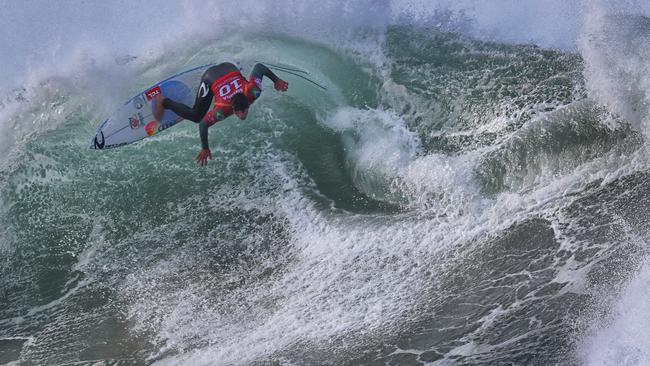No IPO on horizon for Rip Curl
Rip Curl boss Michael Daly has ruled out an initial public offer to float the surfwear retailer.

Rip Curl chief executive Michael Daly has ruled out for now an initial public offering to float the privately owned global surfwear retailer on the sharemarket or a trade sale to private equity.
Instead, he said, the group was now focused on growing its business outside Australia as it opened more stores across North America, Europe and Asia.
Mr Daly told The Australian the two founders of Rip Curl, Doug “Claw” Warbrick and Brian “Sing Ding” Singer, who combined own more than 90 per cent of the group, were of an age where they weren’t looking for massive upheaval in the business they founded in the Victorian seaside town of Torquay 50 years ago.
“They are both in their 70s now and I’m not sure they would desire to follow an IPO, where it is unlikely it would be 100 per cent sell-down, so they would have to retain … significant shares so they would have to be on the board of a listed company,” Mr Daly said.
“I’m not sure at their age and where they are at their stage of life, retirement, they would want to do that. Maybe 10 or 15 years ago but not now.”
The company’s third-biggest shareholder is Francois Payot, who helped create Rip Curl’s European business, and Mr Daly also has a small shareholding.
There had been some interest from private equity of late to buy Rip Curl, which based on a recent share buyback was worth about $310 million, but those buyers had disappeared.
“There’s always someone sniffing around but from our point of view it is business as usual. I have been here 17 or 18 years and we’ve always been 12 months from a sale but nothing has changed,” he said.
“If the right person came along with the right price, background, of course we would have a look at it but at this stage it’s not our focus. Internally it is just not something we focus on, to be honest.”
Rip Curl has delivered good returns for its owners, which include the founders and a small group of executives and outside investors that have a minority holding in the well-known surf brand.
However, those profits have been volatile as Rip Curl, like other fashion brands, rides the waves of consumer behaviour and retail trends. In 2018 Rip Curl’s full-year profit fell to $9.857m from $18.44m in 2017, mostly driven by an $8m impairment to its retail chain Ozmosis. Revenue for fiscal 2018 was slightly down to $478.266m. In 2017 its profit of $18.44m was nearly double the earnings in 2016.
Mr Daly told The Australian there were good growth opportunities for the retailer as the leisure end of the fashion market seemed to be holding up.
“It is tough out there in the wider environment but obviously with our focus on surfing and a lot of locations in coastal beach locations where people are still holidaying we are pretty happy where things are at — in a tough market of course,” Mr Daly said, adding that Rip Curl would be opening new stores with a weighting to overseas markets.
“Depending on which country you are talking about [it varies] but we are definitely opening more stores than we are closing, like the US,” he said.




To join the conversation, please log in. Don't have an account? Register
Join the conversation, you are commenting as Logout